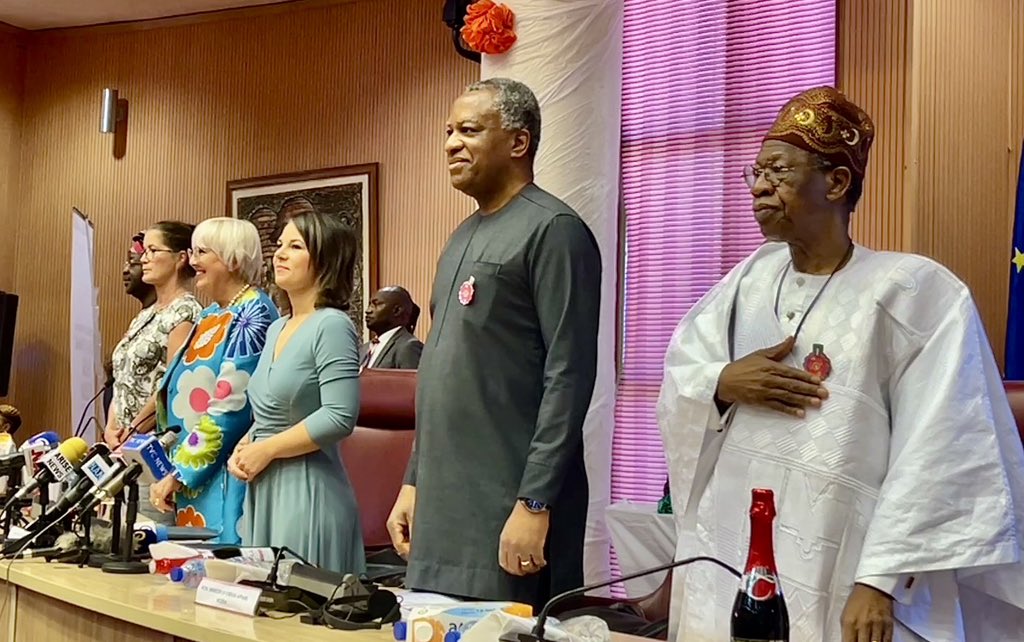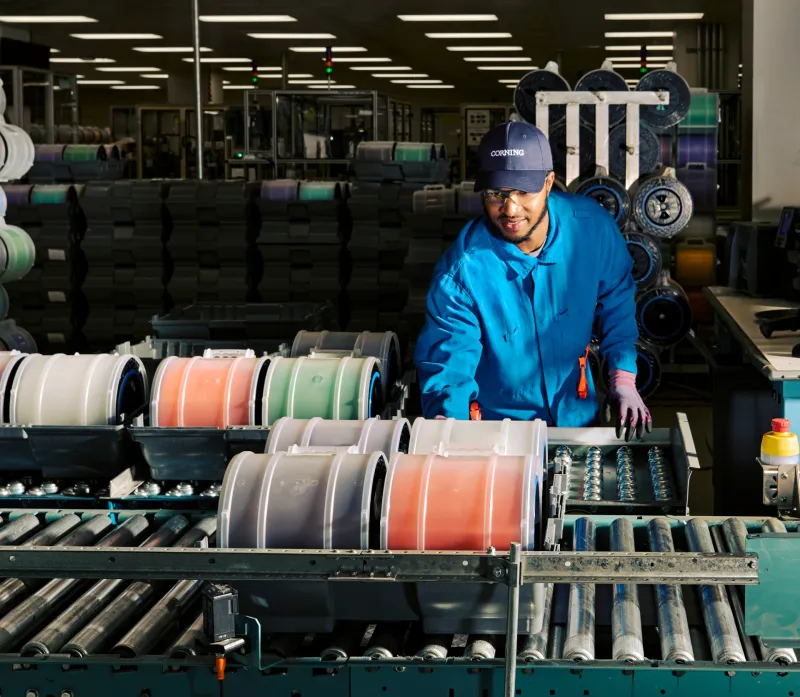German Foreign Minister Annalena Baerbock and other officials returned 20 stolen Benin Bronzes to their homeland. The repatriation of 20 prized bronzes that were looted by British colonialists in 1897 and sold to museums worldwide was described as "a historic day" by Culture Minister Claudia Roth, also in Abuja. The treasures are a small part of 1,130 stolen artifacts held in several museums around Germany. The objects, made of bronze, ivory and other precious materials, are among the most important artworks created on the African continent.
"Today, we are here to return the Benin Bronzes to where they belong, to the people of Nigeria," said German Foreign Minister Annalena Baerbock during Tuesday's official handover in the Nigerian capital, Abuja. "We are here to right a wrong," "We want to return what never belonged to us," she said.

"Twenty years ago, even 10 years ago, nobody could have anticipated these bronzes returning to Nigeria, because the obstacles to achieving repatriation were seemingly insurmountable," said Alhaji Lai Mohammed, Nigeria's minister of information and culture, during a welcome speech at the handover. "But today, with the pioneering gesture of a friendly nation, Germany, the story has changed."
"This act of restitution stands for the recognition of the injustice of a colonial past, which appropriated stolen treasures," Roth told DW. Handing back the bronzes was also an attempt to "give back the cultural identity that we have stolen." Nigeria will celebrate the arrival of the first bronzes with a major exhibition featuring the artifacts in early 2023. The exhibition will allow "Nigerians to see the returned objects," said Abba Isa Tijani, director general of Nigeria's National Commission for Museums and Monuments. "Part of our history is returning, part of our identity." "It's really a huge emotional moment for me,"
Bronzes 'a part of who you are': Baerbock "Art lives in history and history lives in art," said Baerbock in her speech during the repatriation ceremony, quoting Nigerian author Chimamanda Ngozi Adichie. "Art informs who we are. Art shapes how we perceive ourselves and how we perceive the world," she added. "That's why we are not returning mere objects to you, to the Nigerian people, today. We have learned from you: what we are returning is a part of your history, a part of who you are."
The repatriated objects were kept in museums in Berlin, Hamburg, Cologne, Dresden, Leipzig and Stuttgart. In June, the museums first transferred the rights of ownership of all Benin Bronzes. However, some agreements include loan deals so items can be further displayed in Germany before being returned. Last week, the City of Cologne symbolically handed back 92 items as Abba Isa Tijani and Yusuf Maitama Tuggar, Nigeria's ambassador to Germany, began to travel throughout Germany to collect the first batch of Benin Bronzes.
Restitution addresses a dark colonial past At Tuesday's official restitution event Abuja, Baerbock reiterated the need for Germany to address its role in colonial looted art and its failure to return these objects earlier. "Officials from my country once bought the bronzes, knowing they had been robbed and stolen," she said. "After that, we ignored Nigeria's plea to return them for a very long time. It was wrong to take them and it was wrong to keep them." "This is a story of European colonialism," she added. "It is a story, in which our country played a dark role, causing tremendous suffering in different parts of Africa."
Germany to support new Benin Bronzes museum Nigeria is planning to build a modern museum to exclusively exhibit and store the Benin Bronzes. Culture Minister Roth said the restitution is also "a prerequisite for the fact that we speak, here and now, about modern art, about cooperation between museums and create common plans so we can help in building a new campus and promote archaeological work." Germany will support the museum with financial help, cooperation and joint archaeological excavations.



